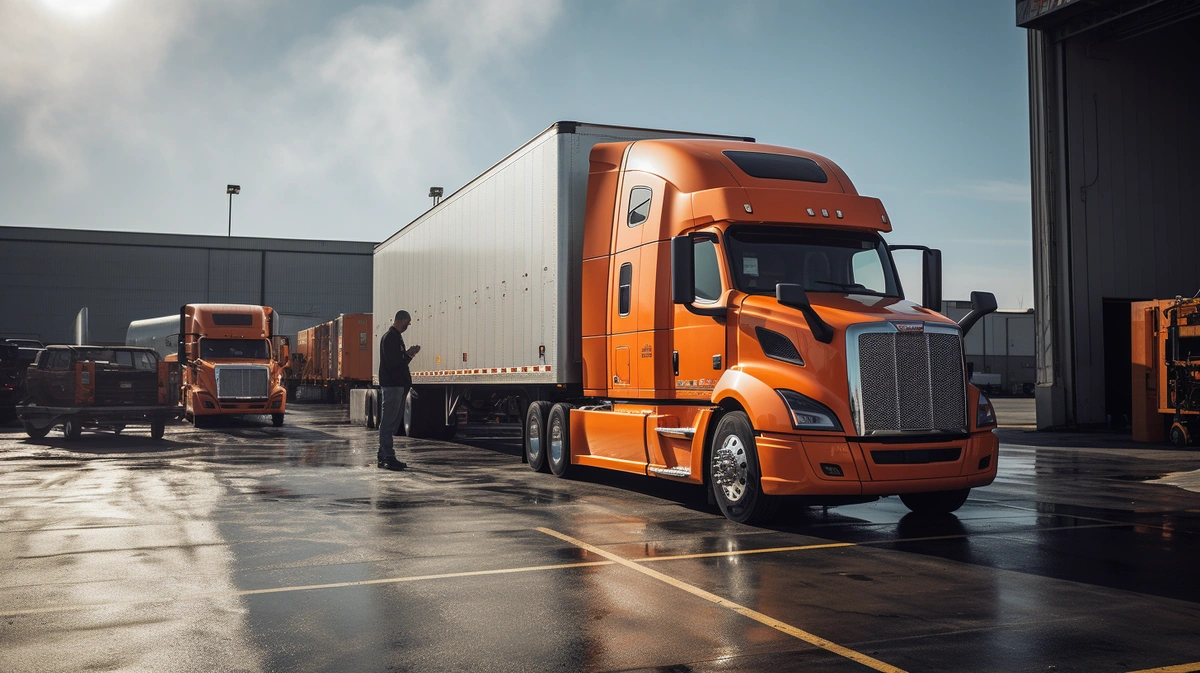The trucking industry stands as the vital backbone of commerce, navigating through the challenges of escalating fuel costs and environmental responsibilities. For those at the helm of the mighty rigs, 'trucking fuel efficiency' extends beyond a mere catchphrase; it represents a fundamental objective. This guide delves into practical tips and strategies designed for truckers and fleets to enhance efficiency and manage fuel expenses.
Strategies for Achieving Trucking Fuel Efficiency and Reducing Operational Costs
-
Understanding Fuel Prices in Trucking: Grappling with the fluctuations of fuel prices is an built-in aspect of the trucking business. Implementing strategies to lower fuel expenses is indispensable in mitigating the business strains linked to these rising costs.
-
Maintain a Steady Pace: Fuel consumption escalates with speed. Adhering to a consistent, moderate speed is a proven approach to lessen gallons consumed per mile and, by extension, the overall fuel expenses.
-
Aerodynamics Matter: Minimize wind resistance to boost fuel economy. Strategic additions like side skirts and roof fairings empower your truck to more efficiently navigate the airstream, culminating in substantial fuel savings.
Idle Thoughts on Idle Time
-
Curbing Excessive Idling: The habitual idling of trucks is a notorious fuel waster. Truckers should conscientiously monitor and minimize idle times.
For instance:
-
Turn it Off: If halted for more than a minute, switching off the engine can conserve fuel. Modern engines are adept at operating without the need for prolonged idling.
-
Invest in Technology: Consider Auxiliary Power Units (APUs) to maintain cabin comfort without the main engine running, thus saving fuel.
Cost-Effective Trucking Operations: Managing Fuel Expenses Beyond the Pump
-
Routine Maintenance Checks: An efficiently running truck is a fuel-saving truck. Consistent maintenance checks that include oil changes, air filter replacements, and tire pressure assessments are crucial.
-
Leverage Telematics for Fuel Economy: Telematics systems provide valuable insights into driving behaviors that can erode fuel efficiency, allowing for real-time adjustments that support economic driving for commercial vehicles.
Economic Driving Strategies from Experienced Truckers
-
Navigating Through Experience: Veteran truckers are familiar with the pressures of cost-effective trucking operations. Their collective wisdom points towards meticulous route planning as a key tactic in circumventing fuel wastage.
-
Carry Only What's Necessary: Extra weight demands extra fuel. Choosing your load carefully can save fuel.
Sustainable Freight Management: Fleet Efficiency as a Collective Goal
-
Educational Initiatives: Instructing drivers on fuel-saving techniques like progressive shifting and strategic braking can make a profound difference.
-
Incentivize Efficiency: Implementing monitoring systems to track fuel efficiency and rewarding top-performing drivers can foster a culture of fuel conservation.
The Compound Benefits of Fuel Efficiency
Improving fuel efficiency pays off in more ways than just saving money right away. They contribute to a reduced carbon footprint, diminished engine wear, and enhance the brand image.
Join the Green Trucking Movement
Economic driving and sustainable trucking solutions pave the way for a competitive edge in the industry while promoting a cleaner planet. By embracing these strategies, truckers and fleet managers not only witness a downturn in fuel expenses but also partake in crafting a sustainable legacy within the trucking industry.
Implement these green trucking solutions today and take your place at the forefront of the industry's move towards reducing its carbon footprint while adeptly managing fuel costs and consumption.
Get The Parts You Need
At FinditParts, we offer a full range of parts to keep up with the demand of our evolving industry. We work closely with leaders in aftermarket electrification like Meritor, Dana, and OEMs Freightliner, Mack, Volvo, Peterbilt, Kenworth, International, and others as they develop new electric drive and autonomous systems.

